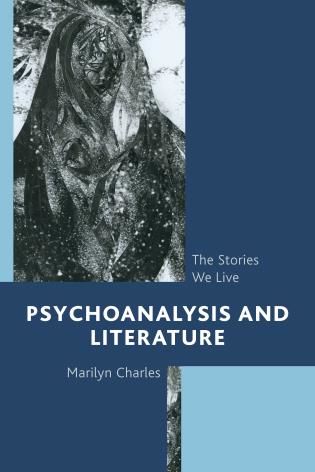
Psychoanalysis
We Tell Ourselves Stories in Order to Live
Literature has an enduring power to explain the workings of the mind.
Posted April 16, 2018

When Freud sought to explain the complicated dynamics between parents and their children, he turned not to philosophy or abstract data but rather to Sophocles’ Oedipus to give shape to his thoughts. Since then psychoanalysis has often relied upon literature to explicate its themes and find antecedents to its main concerns. Lacan gave a seminar on Poe’s The Purloined Letter. An entire school of literary criticism is devoted to psychoanalytic readings of texts. Marilyn Charles offers her own contribution to the field in her Psychoanalysis and Literature: The Stories We Live.
Many of the essays were first published elsewhere, but Charles organizes them into a coherent structure that will be familiar to readers of her prior work. She begins with an extended examination of Virginia Woolf spread across two chapters and then proceeds through the themes of trauma, dreams, cultural collisions, identity & relatedness, and aging & creativity. Charles often begins by introducing a psychoanalytic concern or concept, transitions to a work of literature, and through an extended examination of its content helps illuminate both psychoanalysis and literature.
Charles’ reading preferences tend to skew towards contemporary literary fiction; she examines Don DeLillo, Haruki Murakami (twice), and Richard Powers, among others. Some 19th century writers are present (George Eliot, Herman Melville), but for the most part Charles’ references begin with modernism. One’s enjoyment of the essays will depend in part upon how familiar the reader is with the various works she cites; I found it much easier to follow along when she was discussing books I had read than with those I have not. I was still able to follow along with her larger psychoanalytic points, of course, but references to unfamiliar texts, no matter how comprehensive, always fall somewhat short. Of the 17 books surveyed at length, only 6 of them are translated works, most from well-known authors (Hermann Hesse, Michel Houellebecq). Charles should not be blamed for the faults of the publishing industry, of course, and devoting roughly a third of her book to translated works is a welcome improvement over the industry standard where only 3% of books published in a given year are works in translation. Nevertheless, fiction plays a vital role in transcending boundaries, and I would love to read about how literature from Africa and South America illustrates (or contradicts) psychoanalytic theories.
One of my graduate school professors was fond of telling us that our role as therapists was to be the keepers of others’ stories. Psychoanalysis is a perspective keenly centered on the stories we tell ourselves, both about our own lives and in the realm of fictions. Charles’ Psychoanalysis and Literature is a great contribution to this ever-fruitful conversation.
References
Charles, M. (2015). Psychoanalysis and Literature: The Stories We Live. New York, NY: Rowman & Littlefield.

